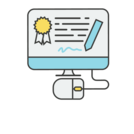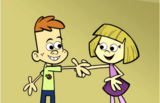Define with examples basic terms (e.g. media literacy, mass media, local media, social media). Review previous terminology.
- Subject:
- Media and Communications
- Material Type:
- Lesson
- Author:
- Utah Lesson Plans
- Date Added:
- 11/01/2021
Define with examples basic terms (e.g. media literacy, mass media, local media, social media). Review previous terminology.

This lesson plan is designed to allow students to explore different aspects of digital citizenship. You should begin with a brief discussion and then allow students to proceed through the Hyperdoc, making their own selections of which media to watch/play and which questions to discuss with a partner.

This is a lesson plan created by Copyright & Creativity for Ethical Digital Citizens. In this lesson plan, students learn the importance of attribution—getting credit for the work they do and giving credit to others for their creative work. This resource includes the lesson plan (pdf) and links to an accompanying Google Slides presentation and YouTube video.

This Canva presentation can help middle school teachers instruct students in developing positive online interactions.

This Canva presentation can help high school teachers instruct students in developing positive online interactions.

This is a lesson plan created by Copyright & Creativity for Ethical Digital Citizens. In this lesson plan, young students learn the importance of attribution—getting credit for the work they do and giving credit to others for their creative work. Included with this resource are the lesson plan (pdf), and links to an accompanying Google Slides presentation and YouTube video.

This is a lesson plan created by Copyright & Creativity for Ethical Digital Citizens. This lesson introduces the concept of fair use. It promotes creative expression and gives students experience with the basic idea of copyright. This resource includes the lesson plan (pdf) and links to an accompanying Google Slides presentation and YouTube video.